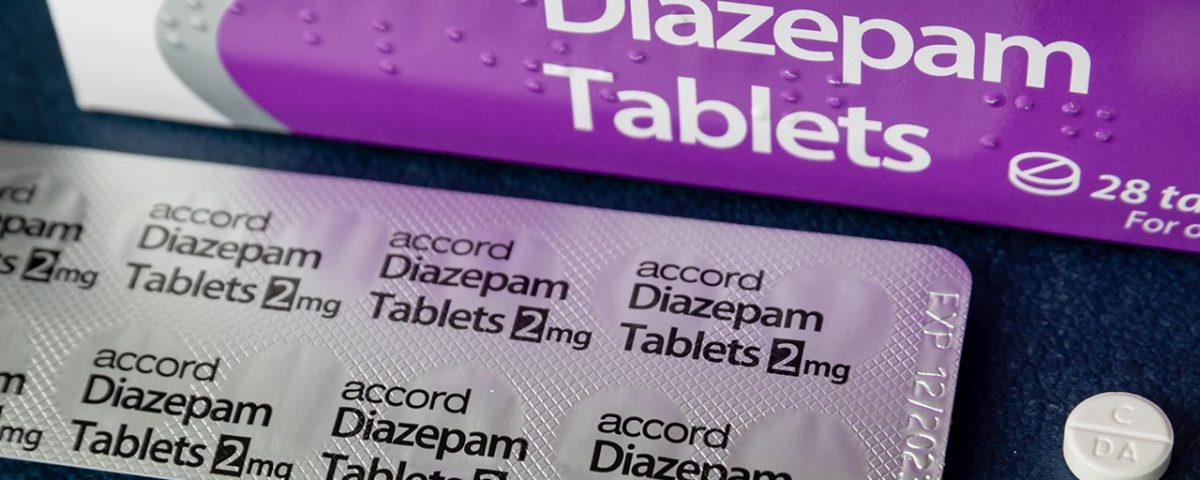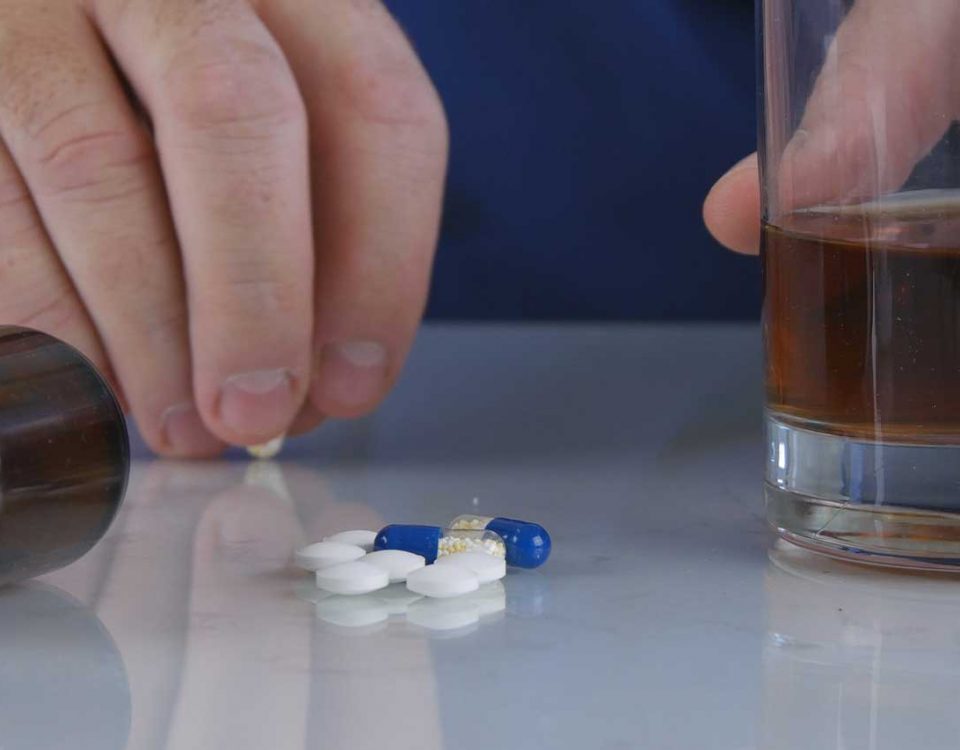Diazepam is a prescription benzodiazepine used to treat anxiety, muscle spasms, seizures, and alcohol withdrawal.
Also known by the brand name Valium, diazepam can come in the form of an oral tablet, nasal spray, injectable liquid, and rectal gel. Diazepam is a benzodiazepine (benzo), meaning it’s a central nervous system (CNS) depressant that reduces activity in the brain and spinal cord. When taken in high doses, it can produce a calming and euphoric high, which is the main reason why it’s a common drug of abuse. However, diazepam side effects can be much more severe than sedation.
What Are the Effects of Diazepam?
Like other benzos, diazepam works by increasing levels of a neurotransmitter called gamma-aminobutyric acid (GABA). GABA is an inhibitory neurotransmitter because it blocks or inhibits certain brain signals and reduces activity in the CNS. Diazepam causes GABA to attach itself to GABA receptors in the brain and spinal cord, producing a calm effect. This can help alleviate symptoms of anxiety and stress and can also help to prevent seizures. However, when diazepam is taken in larger doses than prescribed, it can produce a sedative high in addition to other side effects.
Common diazepam effects on the body include:
- Sedation or sleepiness
- Drowsiness or fatigue
- Muscle weakness
- Uncontrollable muscle movements (ataxia)
- Headache
- Tremor or shaking
- Dizziness
- Dry mouth or excessive saliva
- Nausea and vomiting
- Constipation
- Impaired judgment
- Slowed motor skills
- Slowed reflexes
- Difficulties concentrating
- Confusion
- Slowed or slurred speech
- Blurred vision
- Memory loss
- Anxiety
- Hallucinations
- Muscle spasms
Diazepam adverse effects also include overdose. A Valium overdose occurs when a person takes more than the recommended dose. The body may then experience biological reactions to an intoxicating amount of this drug, including symptoms like blue lips or nails, difficulties breathing, increased confusion, and muscle spasms. An overdose can either be accidental or intentional, so it’s important to monitor your doses if you're taking this medication.
Although this is a prescription drug, diazepam is often abused for the high it can produce. Those who use prescription drugs like benzos without a prescription or take higher doses than directed by a doctor risk developing an addiction. Valium is habit-forming, and long-term diazepam abuse may facilitate the need for a benzo detox treatment to flush it out of the system and begin physical recovery.
How Long Do the Side Effects of Diazepam Last?
The side effects of diazepam can begin within 15 minutes after it’s taken and reach their peak after about an hour. A Valium high can last for about 4 to 6 hours. However, Valium’s half-life is pretty long (20 to 70 hours), which means it can take anywhere from 2 to 3 days for the drug to leave a person’s system. Because a diazepam high only lasts for a few hours, users who abuse it may take more doses to sustain this feeling. This type of usage can increase their risk of diazepam overdose and, over time, can increase their risk of addiction as well.
Because Valium is such an effective medication, it can be easy to become dependent on it. It’s common for people to build a tolerance to diazepam side effects when they abuse it for a long time. A person tolerant to drugs requires higher doses to experience the same high. This is one of the hallmarks of Valium addiction. Without prescription drug addiction treatment, the person’s frequency of use and dependence on the drug may only grow worse.
If you or someone you know is addicted to drugs like diazepam, our substance abuse treatment center in Stuart, FL, has the resources you need to recover. Call Banyan today at 888-280-4763 to learn how our motivational interviewing for benzo addiction can help.
Related Readings:









